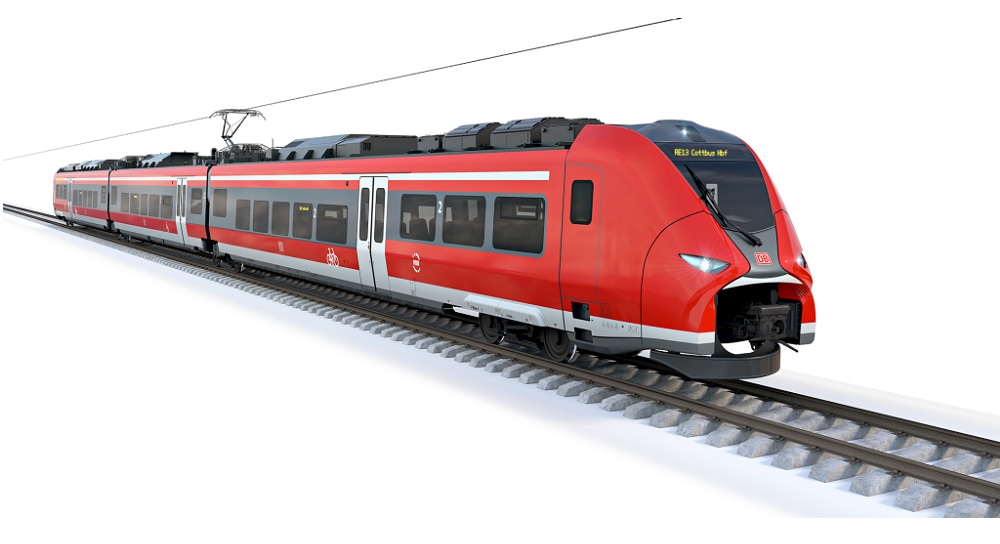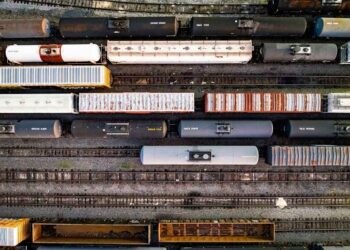Bombardier Transportation India, Siemens Limited, Alstom Transport India Ltd are the big names among 23 firms that have evinced interest in running private trains on Indian Railways’ network of more than 100 key routes.
A pre-bid meeting was held by the ministry of railways on Wednesday with the firms. The private firms raised several queries regarding flexibility in clusters, eligibility criteria, bidding process, procurement of trains, fares, operations and Maintenance, officials aware of the development said.
Private players will be given full freedom to decide the fare for the passengers and will be given the option of either purchasing the trains or leasing them in terms of procurement, officials from the Niti Aayog and railway ministry clarified.
The 23 firms who have sought interest in the tender are: Medha Group, ALSTOM Transport India Ltd, state-run BEML Limited, Bharat Heavy Electricals Limited (BHEL), Bharat Forge, IRCTC Ltd, Bombardier Transportation India, CAF India Pvt. Ltd, Gateway Rail, GMR Infrastructure Ltd, Hind Rectifiers Limited, Iboard India Private Limited, ISQ ASIA Infrastructure investments PTE.LTD, Jasan Infra Private Limited, JKB Infrastructure Pvt Ltd, L&T Infrastructure Development Projects Ltd (L&T IDPL), Medha group, Megha Engineering & Infrastructures Limited (MEIL), National Investment and Infrastructure Fund, PSGG Technologies Pvt Ltd, R.K Associates & Hoteliers Pvt.Ltd, Siemens Limited, Sterlite Power and Titagragh Wagons Limited.
“The ministry of railway inter alia emphasised that complete freedom will be given to private partner in terms of procurement of trains – can either be purchased or taken on lease. MoR also clarified that risks with regard to operation of trains shall be allocated to the parties best suited to manage them. MoR also informed that the private entity shall have the freedom to decide on the fare to be charged from its passengers,” the ministry said on Wednesday.
“As part of the Bidding Process, MoR conducted the second Pre-Application Conference on August 12 which received an over-whelming positive response, with participation from about 23 prospective Applicants with varied profiles. Applicants’ queries with regard to the definition of Gross Revenue were also addressed. Regarding haulage charges, MoR informed the indicative haulage charges @ Rs 512.31 per train km for 2019-20 with indexation,” the ministry added.
The railway ministry on July 1 began the formal process of allowing private trains on 109 routes – a process that aims to, for the first time, to open up one of the government’s most prominent enterprises that has in recent decades been outpaced by the demands of a rapidly growing economy.
The ministry issued what is known as a request for qualification (RFQ) private companies to run 151 trains spread over these routes, laying down specific conditions that will need to be met in a move that is meant to “introduce modern technologies and world class services” for one of India’s most popular modes of transport.
The private partners will be selected through a two-stage competitive bidding process comprising Request for Qualification (RFQ) and Request for Proposal (RFP). The first pre-Application Conference was held on July 21. Post the first pre-application conference, ministry of railways reduced the RFQ fee by one tenth for participating in more than one project, removed restriction of up to 3 projects per bidder and clarified that leasing of trains is allowed. The ministry has also shared traffic data, draft concession agreement, draft feasibility report and draft manual for standards and specifications of trains.
The railways plans to introduce private trains on its network in phases, with the first dozen due to start running in the 2023-24 financial year and all 151 by 2027. According to the railway ministry’s projections, the transporter will select the companies that will run the private trains by April 2021; the first 12 are expected to start plying by 2023-24, followed by 45 more in FY 2024-25, the next 50 in FY 2025-26 and the last 44 by 2026-27.
The ministry plans to run the trains along 12 clusters across Indian Railways’s network. It has planned two clusters each in Delhi and Mumbai, and one cluster each in Secunderabad, Chennai, Howrah, Jaipur, Prayagraj, Chandigarh, Bengaluru, and Patna.
According to the ministry, the planned investment will come to around Rs 30,000 crore, and a majority of the rakes (70%) will have to be manufactured in India; private entities cleared to run the train services shall be responsible for financing, procuring, operating and maintaining the trains.
The trains will be designed to run at a maximum speed of 160 kmph. The ministry expects a reduction in journey time by around 10-15% at 130 kmph and around 30% at 160 kmph. Initially, they will run at 130 kmph and are slated to run at 160 kmph by March 2024.


































